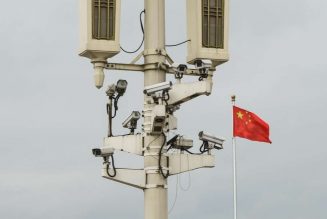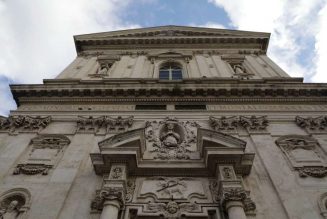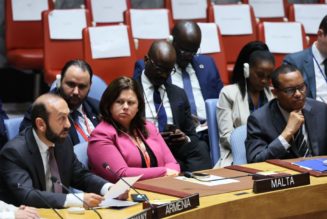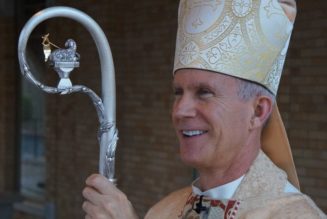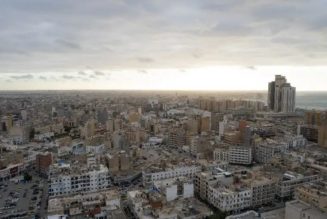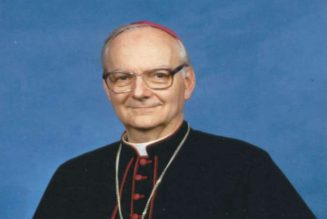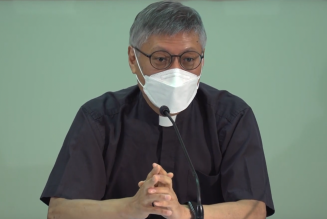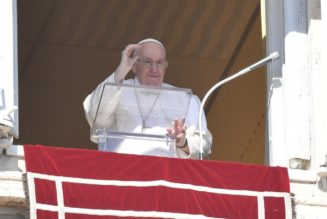The leader of the Ukrainian Greek Catholic Church last week met Pope Francis as well as Pope Emeritus Benedict XVI, the Vatican’s Secretary of State, and other dicastery heads.
In Rome for the first time since the war in Ukraine began, Major Archbishop Sviatoslav Shevchuk also celebrated the Divine Liturgy in St. Peter’s Basilica — in front of the tomb of St. Josaphat on Nov. 12, the saint’s feast day.
The Mass saw the participation of many bishops from Ukraine who had come to Rome for different reasons. They were joined by Archbishop Gintaras Grušas, president of the Council of the European Bishops Conferences.
In an exclusive interview with CNA, Archbishop Shevchuk took stock of his week in Rome. He provided a perspective on the history and role of the Ukrainian Greek Catholic Church.
The major archbishop also refuted claims the church was “national” and denounced the “genocidal claim” of the war, all the while underscoring that he was hopeful nevertheless — because his hope is in God the Savior.
The leader of the Ukrainian Greek Catholic Church also offered his view on the future of his country after the war.
The Meetings at the Vatican
On Nov. 6, His Beatitude kicked off his week of meetings with an audience with Pope Francis. During the week, he had several bilateral meetings.
Archbishop Shevchuk told CNA he found “a great openness and a great willingness to listen from everyone.”
Before being elected major archbishop of the Ukrainian Greek Catholic Church, Archbishop Shevchuk was the Eparch for Buenos Aires, where he met the then Cardinal Jorge Mario Bergoglio, the later Pope Francis. The Ukrainian major archbishop and the pope from Argentina are long-time friends.
Speaking of his latest meeting with the Pope, Archbishop Shevchuk said the pontiff “had a paternal warmth towards me that moved me. He assured me that both he and the Holy See are willing to do everything possible to alleviate the pains of the Ukrainian people and end this unjust aggression.”
However, he added, “it is difficult to outline how to end this war. The world is looking for methods, formulas, and even possible mediation mechanisms. However, the Holy See is willing to do everything possible to ensure that this war ends as soon as possible.”
Archbishop Shevchuk also met with Cardinal Kurt Koch at the Dicastery for the Promotion of Christian Unity, with Cardinal Leonardo Sandri at the Dicastery for the Eastern Church, and with the top officials of the Dicastery for the Catholic Education and Culture, since the Catholic University of Ukraine is “now in the process of updating the statutes.”
On Nov. 12, the major archbishop met with Cardinal Pietro Parolin, Vatican Secretary of State. Archbishop Shevchuk said they spoke in detail about “the efforts of pontifical diplomacy in favor of peace, and above all of the efforts to assist the Ukrainian people.”
On his side, Archbishop Shevchuk thanked for the liberation of some prisoners, and in particular the Holy Father “who is committed to ensuring that all those who suffer the ill-treatment and torture of Russian captivity can truly return home. And I also brought new cases, collected while visiting our parishes and eparchies.”
Finally, “we also talked with Cardinal Parolin about the approaching winter and how to experience this cold period. As we know, Russia is systematically destroying our city’s critical infrastructure. Now Kyiv lives practically without light, and if there is no electricity in a large apartment building, there is no water, no heating, and no possibility of cooking because all kitchens work with electricity. Large apartment buildings and skyscrapers have become cold traps.”
The Challenges in Ukraine
Archbishop Shevchuk explained that “there is the need to face a great humanitarian challenge” since “we have nearly 10 million internally displaced people and refugees.”
“Some have remained in Ukraine, and others have crossed the border and are in European countries because the Church in Europe has opened its heart, homes, churches, and parishes for our refugees,” the Ukrainian prelate said.
“We have also thought about concrete steps to help this suffering population. Some foresee another wave of displaced persons or refugees and call them ‘thermal refugees’ because they will be moving around looking for a place to warm up to stay alive.”
When Russian president Vladimir Putin announced the beginning of the “special military operation” in Ukraine, he said the main goal was the Ukrainian de-Nazification.
However, the Ukrainian State and Ukrainian nationalism have a broader history.
In particular, the Ukrainian Greek Catholic Church “has a troubled history,” said Archbishop Shevchuk.
He stressed that “we are children of the Baptism of Kyiv Rus, we were born in the waters of the Dnieper River, which is often nicknamed ‘the Ukrainian Jordan’ when the holy princes Vladimir and Olga were baptized in the river in 988.”
Archbishop Shevchuk continued: “Kyiv was the cradle of Christian civilization in Eastern Europe. All the other countries were born later. The Moscow Church is also a daughter of the Kyiv Church.”
Archbishop Shevchuk added that the Ukrainian Greek Catholic Church is “the only church that carries within itself the mystical memory of the Church of undivided Christianity because all the other Slavic churches were born after the so-called Eastern Schism.”
He said: “the Church of Kyiv has always considered the division between Rome and Constantinople as something against the very nature of the Church. The first centuries of the division were experienced as a quarrel between Rome and Constantinople. Metropolitan Isidore of Kyiv participated in the Council of Florence in 1451.” Then, “in 1596, the Kyiv Church decided to enter into communion with Rome,” he added.
Archbishop Shevchuk said the Ukrainian Greek Catholic Church had always been “a Church of the people,” also when the nation lost its statehood and “experienced the situation of being a people living in their land, but in alien states. Often our church exercised some functions of the state to help the people.”
“In the years of the Soviet Union, our church was truly liquidated by Stalin’s regime. We were forced to live in hiding, constituting the largest resistance group against Communism of the 20th century. Yet, not even Stalin managed to eliminate us.”
With the fall of the Soviet Union, Archbishop Shevchuk said, “our church was reborn. It came out of the catacombs. I was a young priest and saw the resurrection of our church. It was a true Easter experience. We are disciples of priests who have been in prison for many years and carried the signs suffered for their church on their flesh.”
The Role of the Greek Catholic Church in this War
The Ukrainian Greek Catholic Church leader had publicly lent his voice to the so-called “Revolution of Dignity” in 2014 and always supported the people’s call for more democracy and closeness toward the European Union.
Archbishop Shevchuk reiterated, “We, as I said, have always stood by our people, whatever the conditions. This is still the case today.”
The major archbishop also described the claim that the Ukrainian Greek Catholic Church was nationalist as “pure propaganda of the Kremlin.“
“We are not a Ukrainian Church that is only for Ukrainians,” Archbishop Shevchuk said.
“The Ukrainian Greek Catholic Church cannot be accused of nationalism because today we have Ukrainian Greek Catholics of Chinese origin in Vancouver, and we have many parishioners who are not of Ukrainian ethnicity in Canada, the United States, Brazil, Argentina, Australia.”
Archbishop Shevchuk added that the cathedral in Kyiv became a refuge for everyone during the current war.
“No one has ever asked ‘what language do you speak?’ or ‘which church you go to?’ On the contrary, we welcomed everyone who needed it, providing food, medicine, and everything they could to save lives. This is our identity: We are an Eastern Church of Byzantine tradition, which considers the Church of Constantinople as the mother Church, but which remains in full communion with the successor of Peter and breathes this mentality.”
Because of this extensive history before it, Archbishop Shevchuk said, “all those who affirm that Ukraine must be de-Nazified somehow affirm that the Ukrainian people do not exist. That the Ukrainian people do not have an ethnic origin.”
From this point of view, the Ukrainian prelate continued, Russia should “educate these ‘slightly underdeveloped Russians,’ or eliminate them. So this war, and the propaganda that feeds it, is the fruit of a genocidal ideology.”
The Ecumenical Impact
For over 25 years the Pan-Ukrainian Council of Churches and Religious Organizations in Ukraine has brought together all the Ukrainian religious denominations and today it has become an authoritative voice.
Archbishop Shevchuk said the institution had become an essential moral authority and that “since the war broke out, our council has proved to be a very efficient body for meeting new challenges.”
Among the latest initiatives, there is an appeal to intellectual centers worldwide to study and respond to Russky Mir, the ideology of the “Russian world.”
According to Archbishop Shevchuk, “this ideology was born within the Orthodox Patriarchate of Moscow, and we are seeing it in the latest patriarch’s sermons. It is an ideology that brings death and destruction to Ukraine, I have personally witnessed.“
The council has made several appeals to stop the war. “We wrote a letter to churchmen and religious representatives of Russia to do everything to stop this war. We wrote to the Belarusian people not to enter this war. It is a service we do in the name of the common good, and this love for our people has made us overcome many discords between our churches.”
The representative of the Ukrainian Orthodox Church, which is under the Moscow Patriarchate, agreed to the letter.
Ukraine’s Future
What does the future hold for Ukraine? How can one rebuild trust between Russia and Ukrainians, across borders, between people living side by side, or together?
To Archbishop Shevchuk, this is “an open question.” In his daily video messages, he has addressed the issue and outlined his views on designing the nation after the war based on Catholic social teaching.
The head of the Ukrainian Greek Catholic Church added that nowadays, healing means, first of all, “rebuilding the Ukrainian people’s trust in democratic values.”
“We, as a people, want to rebuild the values of democracy. But of course, we also have to face the great challenge of rebuilding human and social relationships. So, in addition to international relations, the topic is how to heal the wounds caused by the war between Ukrainians and Russians.”
He added: “We seek answers. We see this will be a long process of reconciliation. And there are conditions for reconciliation, which are understandable. The Ukrainian population is susceptible to external imposition of peace or forced reconciliation. This is not peace. It is just the destruction of a smaller state by a stronger state.”
Conditions for Peace
According to the major archbishop, “the Russian people must realize that the Ukraine exists, admit the Ukrainian state’s right to resistance, and reconcile with the reality that the Ukrainian people have their history, language, and culture.”
Archbishop Shevchuk added: “We have the right to exist while preserving our identity as a political, non-exclusive, but inclusive nation, as seen by the fact that Jewish communities proclaim themselves Ukrainian citizens (our president is of Jewish origin) and the head of civil administration and Mykolaiv’s military is a Korean, the famous Kim.”
In the end, he said, “Russia must recognize the existence of this reality of Ukraine. If, on the other hand, Russia speaks to Ukraine in the language of ultimatums, there can be no peace process.”
After that, “we must truly seek justice because authentic peace without justice does not exist. We must discover the whole truth, even if it is crude, and I am also talking about the violence that took place at the hands of Russia in the martyr cities of Ukraine. Even in these latest events, truth-based justice is a step towards future reconciliation.”
According to Shevchuk, “We must not reconcile geopolitical ideas or views or proposed formulas of an illusory peace. Instead, we must reconcile hearts and people, and we know that reconciliation between people requires constant spiritual and moral work.”
“It is a work that will truly last for a long time, and we cannot say how long it will take to heal hearts.”
In conclusion, the Major Archbishop of the Greek Catholic Church showed himself hopeful, despite everything.
“I have hope. My hope is not an illusion or an escape from a cruel reality. It is a hope in the Lord. When we do not know what will become of us, we can draw on the strength of God, which is the strongest of all, and which is Wisdom itself. When we do not know how we will live in two or three months, we must not be too agitated because not man but God is the master of time and space. If we live with hope in God, we live hope.”
He concluded: “The world without God is doomed to death. Illnesses, and wars, are visible signs of death present in the flesh of a world that has rejected God. Therefore, we must bring God back into this world.”
Join Our Telegram Group : Salvation & Prosperity

